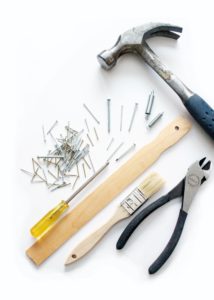 Newer real estate investors love depreciation…until they get their first broken water heater or roof leak.
Newer real estate investors love depreciation…until they get their first broken water heater or roof leak.
Despite knowing how commonplace maintenance issues can be, they’re still never the first thing any of us wake up excited to tackle. Sometimes that’s because it’s those issues themselves that literally wake us up, and other times it’s because we know they’re going to be inconvenient and potentially expensive.
Nevertheless, maintenance and repairs are part and parcel of owning investment properties. While the repairs in and of themselves can vary from relatively simple-to-fix clogs (to much larger plumbing issues), a common question tenants and those new to property management have is who is responsible for what when it comes to maintenance.
Tenant or Landlord? Who’s Responsible for Maintenance in Columbus?
There are two major considerations you need to account for when evaluating maintenance responsibility.
The first is that you have to be aware of state laws. In Ohio, state laws for residential leases dictate much of what is required by landlords in terms of maintenance responsibility.
Namely, the landlord must keep the rental unit safe, habitable and sanitary. That means if the heating or cooling system clunks out or if there’s a plumbing disaster that renders clean water unavailable, the landlord must act immediately to fix these problems.
Second, it’s essential to spell out maintenance responsibilities in your lease so that it is crystal clear who is responsible for what, especially when it comes to those items that sit more on the margins.
For example, consider a clog scenario. If a tenant’s sink is clogged and the water won’t drain freely, we, at RL Property Management, encourage clients to stipulate in their lease that it is the tenant’s responsibility to call a plumber and pay to get it fixed. The reason is simple: when we provided the property to the resident, the sink drain was clear.
However, if the main sewer line going out to the street has issues with a clog is a different story. It is not something the tenant would be responsible for (in most cases), and we’ll take responsibility for getting the line cleared.
To avoid any confusion at all when it comes to maintenance responsibility, we strongly recommend detailing maintenance responsibilities in your lease. This is the best way to protect yourself and minimize unnecessary expenses.
If you have questions about property maintenance or who should be responsible for what with your rental unit, get in touch with our team today.
